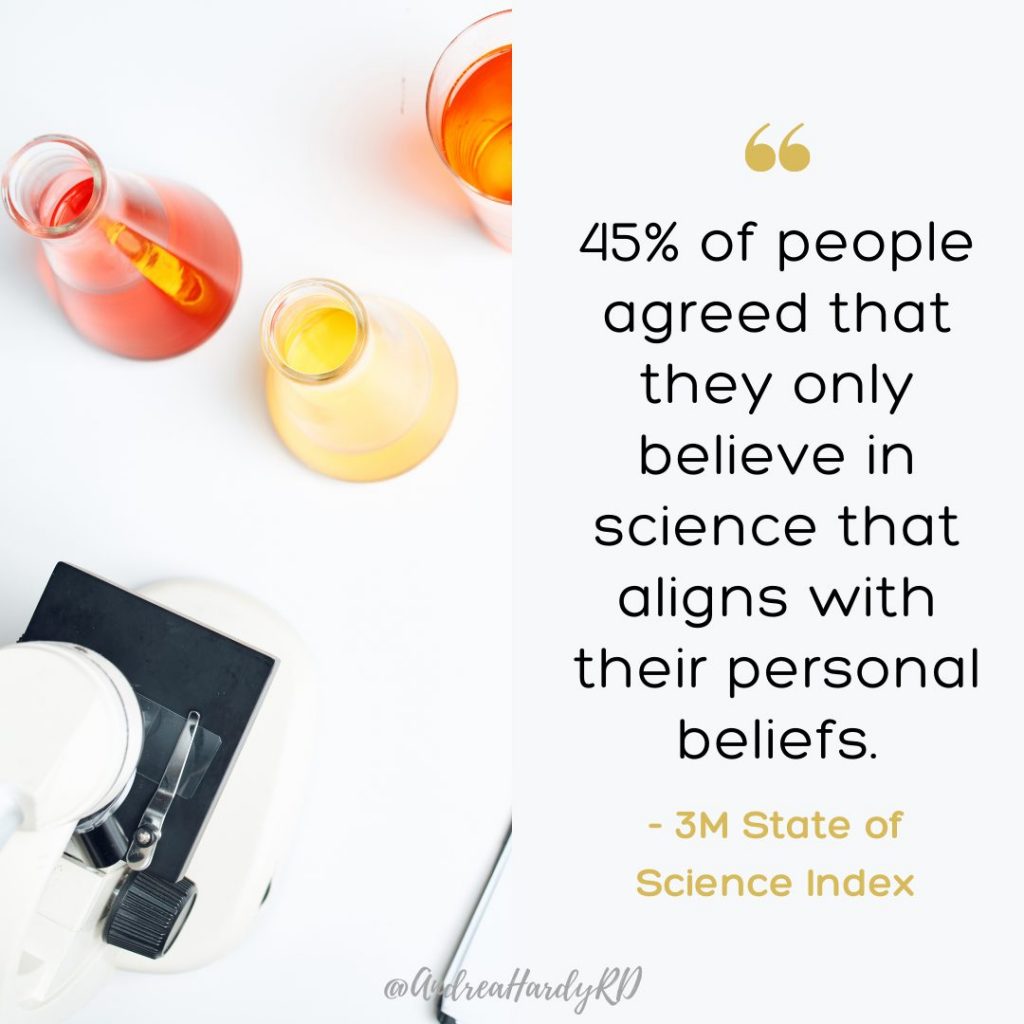How do you feel about science that does not align with your personal beliefs? On Instagram @AndreaHardyRD, I talk all about the state of evidence, and the prevalence of people who agree that they only believe in science that aligns with their personal beliefs.
I’m not surprised, but I’m disappointed… ????????????⠀
⠀
And I take that disappointment as a challenge – how can I communicate science in a way that makes people feel connected, has their concerns validated, and opens the door to challenging their current beliefs without getting them to dig their heels in (because how often do people change their mind?)⠀
⠀
That is a TALL freakin’ order as a science communicator.⠀
⠀
Why? Because our identity is SO wrapped up food that anything that contradicts it feels like a personal attack. ⠀
⠀
When you see science communication online that upsets you (ahem…. my pesticide post from Thursday) – can you ask yourself:⠀
⠀
1) What belief do I currently hold on to that’s making this new information hard to wrap my head around? ⠀
2) What am I afraid of happening if this is true?⠀
3) What am I afraid of happening if this is false?⠀
4) Where did my current belief come from? Does it have strong scientific merit? (hint – extraordinary nutrition claims require extraordinary evidence… refer back to my TEDx talk – if it scares you it’s probably not true!)⠀
If you aren’t sure on 4 (hint- not a YouTube video or random webpage – science communicators can get you on the up-and-up! Just ask to have the science explained! ⠀
⠀
Example: I heard from X source that pesticides cause digestive issues. But you’re saying they don’t. Could you explain? ⠀
⠀
A good science communicator will be familiar with what they are talking about and usually, a lot of the controversial information in their field. If not, luckily – we have a whole crew of scientists, researchers and experts we can confer with to give you an up-to-date answer! ⠀
⠀
From there – YOU get to make the decision. Everyone’s entitled to their own opinion, but not their own facts.


Recent Comments